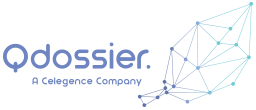Can data drive documents and dossiers?
Overcome the differences in marketing authorizations impacting data, documents and dossiers
- identical pharmaceutical products in two countries, but differences in container (e.g. blister vs. bottle)
- identical pharmaceutical products, but differences in the level of detail provided (with or without supplier of the ingredients)
- identical pharmaceutical products, but a change in the color of the tablet in one country, but not in the other country
Change old habits and step away from paper processes and paper thinking
Project description
Together with the customer, Qdossier defined which documents are most subject to change and where country-specific differences exist. Subsequently, the authoritative sources of truth were defined for the data to be reflected in the documents. We also had to collect country-specific requirements for the type of information and level of details to be provided per country. As a result, a few Module 3 documents were selected, including though not limited to P.1, P.5.1 and P.8.1.
While talking about the definition of a product, the team became aware that various people had different definitions of that. Even for the term to be used for a substance, multiple options were to be considered.
It also became clear that auto generation was possible for the examples we used, but linguistic issues arose like ‘a blue tablet’ vs. ‘an orange tablet’; ‘One blister is’ vs. ‘two blisters are’. Therefore, we decided to redo the document templates and transformed these from narratives to tabular formats. This solved more than just these grammar issues. We were also able to do translations, based of corresponding translations of the master data.
As far as the dossier outlines were concerned, the contextual metadata of a change request was able to create dossier outlines for the countries involved and for the company core dossier, reflecting any registration worldwide.
Based on this positive outcome we extended the feasibility study to address Product Information and various chapters in clinical study reports. Actually, it let the the same conclusions; namely factual information to be provided in tabular formats and needs for authoritative sources and controlled dictionaries.

